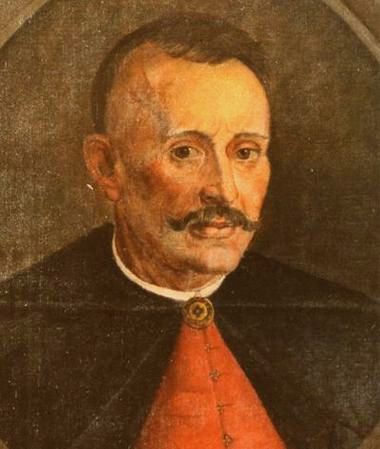Samuel Przypkowski on:
[Wikipedia]
[Google]
[Amazon]
 Samuel Przypkowski (Przipcovius, Pripcovius) (1592–19 April 1670,
Samuel Przypkowski (Przipcovius, Pripcovius) (1592–19 April 1670,
, p. 10
''Bibliotheca Fratrum Polonorum'' Online
h1>
 Samuel Przypkowski (Przipcovius, Pripcovius) (1592–19 April 1670,
Samuel Przypkowski (Przipcovius, Pripcovius) (1592–19 April 1670, Königsberg
Königsberg (, ) was the historic Prussian city that is now Kaliningrad, Russia. Königsberg was founded in 1255 on the site of the ancient Old Prussian settlement ''Twangste'' by the Teutonic Knights during the Northern Crusades, and was named ...
) was a Polish Socinian
Socinianism () is a nontrinitarian belief system deemed heretical by the Catholic Church and other Christian traditions. Named after the Italian theologians Lelio Sozzini (Latin: Laelius Socinus) and Fausto Sozzini (Latin: Faustus Socinus), uncle ...
theologian, a leading figure in the Polish Brethren
The Polish Brethren (Polish: ''Bracia Polscy'') were members of the Minor Reformed Church of Poland, a Nontrinitarian Protestant church that existed in Poland from 1565 to 1658. By those on the outside, they were called "Arians" or "Socinians" (, ' ...
and an advocate of religious toleration
Religious toleration may signify "no more than forbearance and the permission given by the adherents of a dominant religion for other religions to exist, even though the latter are looked on with disapproval as inferior, mistaken, or harmful". ...
. In ''Dissertatio de pace et concordia ecclesiae'', published in 1628 in Amsterdam
Amsterdam ( , , , lit. ''The Dam on the River Amstel'') is the Capital of the Netherlands, capital and Municipalities of the Netherlands, most populous city of the Netherlands, with The Hague being the seat of government. It has a population ...
, he called for mutual tolerance by Christians. He was also a poet in Latin and Polish.''Europeans and Sarmatians - Polish Baroque'' (PDF), p. 10
Life
He studied at theUniversity of Leiden
Leiden University (abbreviated as ''LEI''; nl, Universiteit Leiden) is a public research university in Leiden, Netherlands. The university was founded as a Protestant university in 1575 by William, Prince of Orange, as a reward to the city of Le ...
and Altdorf, returning to Poland in the 1630s. He engaged in controversy with the Jesuit Szymon Starowolski
Szymon Starowolski (1588 – 1656; Simon Starovolscius) was a writer, scholar and historian in the Polish–Lithuanian Commonwealth. He was probably born near Pruzhany, and died near Kraków. He was a very prolific writer, and left behind over 70 w ...
concerning his ''Braterskie napomnienie ad dissidentes in religione'' (1644), and Daniel Zwicker
Daniel Zwicker (22 January 1612 – 10 November 1678) was a German physician from Danzig, and a Socinian theologian and controversialist of the Polish Brethren.
Life
He was the son of Friedrich Zwicker, Lutheran minister of the Church of St. Bar ...
.
He married Alexandra, daughter of Jerzy Czaplic.
Works
*''Dissertatio de pace'' (1628), English translation byJohn Dury
John Dury (1596 in Edinburgh – 1680 in Kassel) was a Scottish Calvinist minister and an intellectual of the English Civil War period. He made efforts to re-unite the Calvinist and Lutheran wings of Protestantism, hoping to succeed when he moved ...
*''Vita Fausti Socini'', a life of Fausto Sozzini
Fausto Paolo Sozzini, also known as Faustus Socinus ( pl, Faust Socyn; 5 December 1539 – 4 March 1604), was an Italian theologian and, alongside his uncle Lelio Sozzini, founder of the Non-trinitarian Christian belief system known as Socinian ...
, English translation by John Biddle
*''Cogitationes sacrae'' in Bibliotheca Fratrum Polonorum
The ''Bibliotheca Fratrum Polonorum quos Unitarios vocant'' or ''Library of the Polish Brethren called Unitarians'' 1665, 1668, 1692 (not 1656 as incorrectly listed in some catalogs) is a collection of writings of the Polish Brethren published by ...
*''De iure Christiani magistratus et privatorum in belli pacisque negotiis'' (c. 1650)
The influence of his works was considerable, if obscured in Western Europe by anonymous publication (the ''Dissertatio'' was attributed to a 'Polish knight'); and 'Socinian' became for a period a by-word for the advocacy of tolerance. While there is an intellectual connection to John Locke
John Locke (; 29 August 1632 – 28 October 1704) was an English philosopher and physician, widely regarded as one of the most influential of Age of Enlightenment, Enlightenment thinkers and commonly known as the "father of liberalism ...
and his ''Reasonableness of Christianity'' (1695), it is argued that Locke was not familiar with the ''Dissertation'' until after 1695. Like his English contemporaries generally, Locke was probably also unaware of the authorship of the work, commonly ascribed at the time to John Hales John Hales may refer to:
*John Hales (theologian) (1584–1656), English theologian
* John Hales (bishop of Exeter) from 1455 to 1456
*John Hales (bishop of Coventry and Lichfield) (died 1490) from 1459 to 1490
* John Hales (died 1540), MP for Cante ...
.John C. Higgins-Biddle (editor), ''The Reasonableness of Christianity By John Locke'' (1999), p. lxi.Online edition
''Bibliotheca Fratrum Polonorum'' Online
h1>
Notes
{{DEFAULTSORT:Przypkowski, Samuel 1592 births 1670 deaths People from Brzesko County Polish Unitarian theologians 17th-century Polish writers